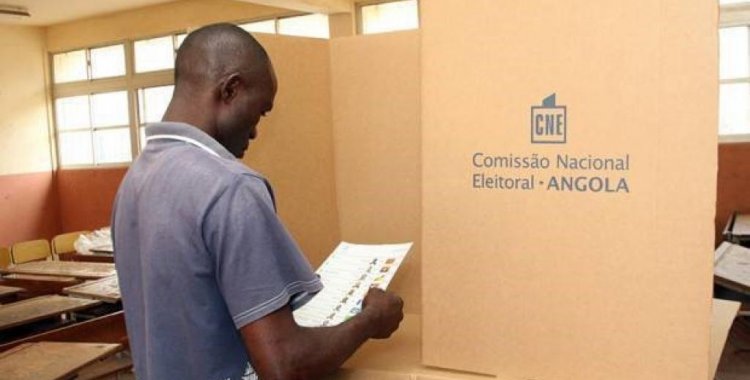The bill amending the organic law of general elections was approved this Wednesday with 126 votes in favor, from the Popular Movement for the Liberation of Angola (MPLA), 52 votes against and one abstention during the 12th extraordinary plenary meeting of the National Assembly.
The legislative initiative results from the merger of bills to amend the organic law of the general elections proposed by the parliamentary groups of the MPLA and the National Union for the Total Independence of Angola (UNITA).
Despite converging positions during the discussions on the specialty, this Wednesday, in the plenary, the political forces that make up the chamber expressed opposing positions.
The MPLA voted in favor because, according to its deputy Tomás da Silva, the revised law results from the merger of the legislative initiative of the two major parties that "discussed the articles exhaustively".
"The vote against can only be a tantrum or, once again, the old ghost of fraud. The present revised law defends deadlines for the holding of elections and gives greater guarantees of efficiency and impartiality to the work of polling stations," argued the deputy in his explanation of vote.
The president of UNITA's parliamentary group said that his party voted "against the electoral fraud law", stating that the "law of the suicide of the democratic state that the regime has just approved is a betrayal of the genuine will of Angolans to build a true democratic state and a free, prosperous and modern state under the rule of law".
According to Liberty Chiyaka, the position of her party is justified by the lack of consensus between two democratic options: "It is a question of rejecting in the name of the Angolan people the proposal that seeks to consolidate the State of the higher orders.
"The proposal for civil society to integrate the CNE (National Electoral Commission) was rejected by the regime, the proposal to prohibit donations of material and financial goods by candidates, a practice of electoral corruption, was rejected by the regime," he pointed out.
Justino Pinto de Andrade, deputy of the Broad Convergence for the Salvation of Angola - Electoral Coalition (CASA-CE), said that his parliamentary group voted against "because this law will lead to situations that eventually discredit the electoral process".
"This law will certainly constitute an obstacle for people to be able to vote conscientiously and, without a doubt, with this law it will be an election full of doubts," he said in his explanation of vote.
For his part, Social Renewal Party (PRS) deputy Benedito Daniel said he voted against the revised law because it "does not fit the model of elections that Angola wants.
"All the effort that was undertaken in the sense of seeking consensus did not work, only the minimum was achieved, ending up conforming the law in a prism that is very maladjusted to the reality of our electoral process and that its application will certainly bring serious consequences," he noted.
The discussion of electoral diplomas in the National Assembly was contested by Angolan civil society, which, in a public petition sent to that institution, demands a "totally independent CNE and scrutiny in each polling station.
The more than 400 signatories of the petition, part of the so-called "civic movement in defense of fair vote and electoral truth", demand in the document, to which Lusa had access on Tuesday, that the scrutiny "should be done in each polling station".
A group of young activists were prevented on Monday by police from demonstrating outside the main entrance of the parliament's headquarters in Luanda, "in favor of the smoothness and transparency" of the electoral package, an act that resulted in the detention of some protesters.
The first phase of voter registration, in Angola and abroad, aimed at the elections scheduled for 2022, begins this September and runs until next December, and the second phase is scheduled between January 5 and March 31, 2022.







